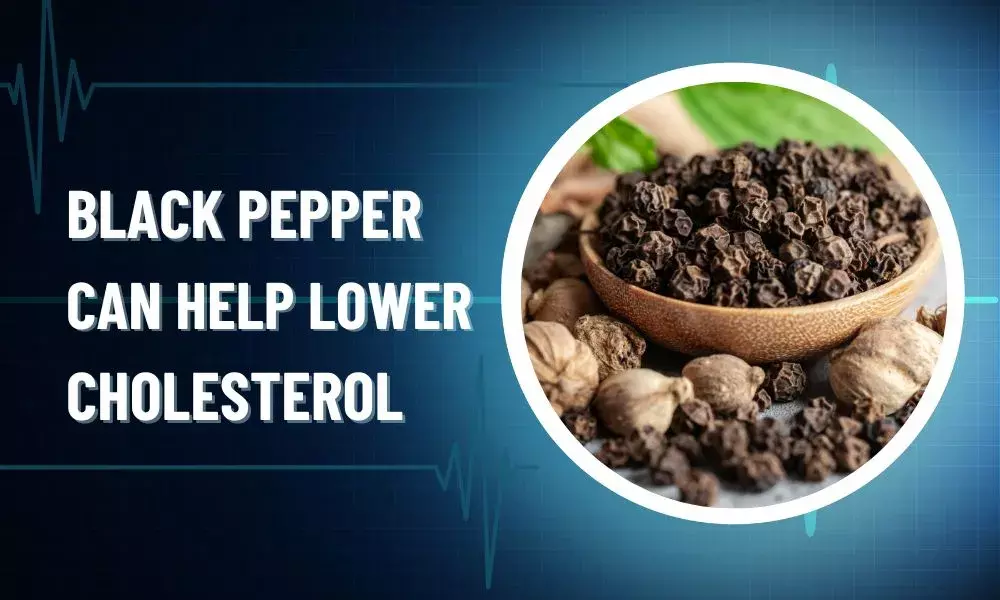Black pepper, a spice used in cooking to make food spicy, is recently gaining attention for its remarkable health benefits.
Black pepper is a fantastic spice that possesses cholesterol-fighting properties that provide numerous health benefits. It helps in digestion, lowers cholesterol levels, reduces constipation, boosts hair and skin health, controls depression, lowers joint pain, treats respiratory ailments, lowers joint pain, and is great for detoxification.
In this article, let us explore the incredible potential of black pepper in lowering cholesterol levels and how we can consume it in our daily diet.
Why are higher levels of cholesterol dangerous to our health?
The excess cholesterol in our bloodstream can cause blockages in arteries and pose a serious cardiovascular health risk. High cholesterol level, especially LDL (low-density lipoprotein), increases the risk of heart stroke and other life-threatening conditions.
It is, therefore, essential to adopt natural ways to combat these risks effectively. Consuming black pepper is one such natural way that can help prevent risk of heart disease by lowering cholesterol.
Role of Black pepper in lowering cholesterol
Black pepper is rich in a substance called piperine, which has anti-inflammatory and antioxidant properties. Piperine plays a vital role in reducing LDL (low-density lipoprotein) levels, also known as “bad” cholesterol. This is done by internalizing the cholesterol transporter proteins. It simultaneously increases HDL cholesterol (“good” cholesterol).
As an antioxidant, piperine primarily scavenges cell-damaging free radicals and alleviates oxidative stress (caused due to excessive free radical build-up). Such antioxidant activity is especially beneficial for overall good health, as continuous exposure to oxidative stress can severely weaken immunity, increasing the risk of common cancers and many other chronic diseases.
How to add pepper to your diet?
Black pepper is undeniably a spice worth incorporating into our daily lives. To ensure optimum benefits and enhanced flavor, it is essential to use black pepper correctly. Here are a few ways to add a little pepper to your daily diet:
Consume freshly ground pepper: Grinding the whole peppercorns before use helps retain its powerful flavor and active compounds. Always use freshly ground black pepper for maximum potency.
Pair with Healthy Fats: Piperine, the active compound in black pepper, is fat-soluble. To optimize its absorption, consider pairing it with a healthy fat source. Adding a pinch of black pepper to avocados, olive oil, or nuts can enhance the nutritional value of food.
Spice Up Your Meals: Adding black pepper to various dishes like soups, salads, stews, stir-fried vegetables, and marinades can elevate the flavor while helping to control cholesterol levels.
Turmeric-Black Pepper Combination: Combining black pepper with turmeric creates a synergistic effect. The presence of piperine enhances the absorption of curcumin, the active compound in turmeric. This combination not only boosts cholesterol control but also possesses anti-inflammatory properties.
In a nutshell, black pepper, along with enhancing the taste of food, is a spice with high nutritional value. It not only helps in controlling cholesterol levels but also aids in improving nutrient absorption in our bodies. By making small changes to our diet and using black pepper correctly, we can take proactive steps towards maintaining a healthy heart and overall well-being.





